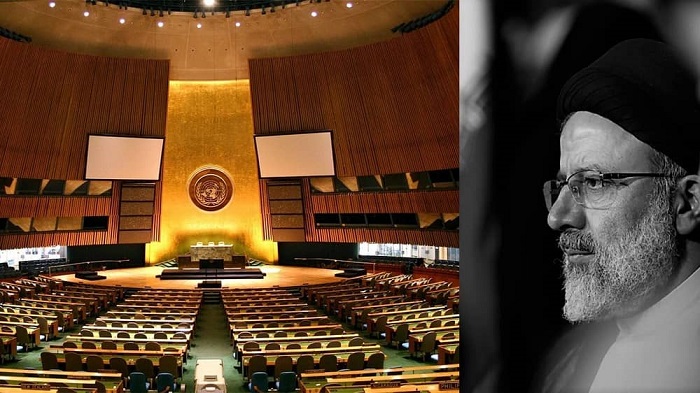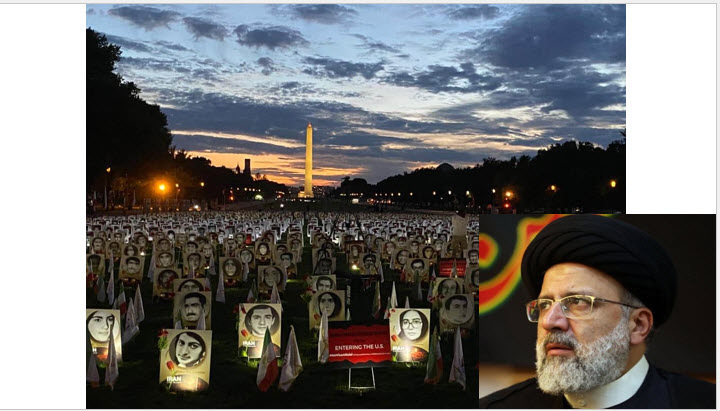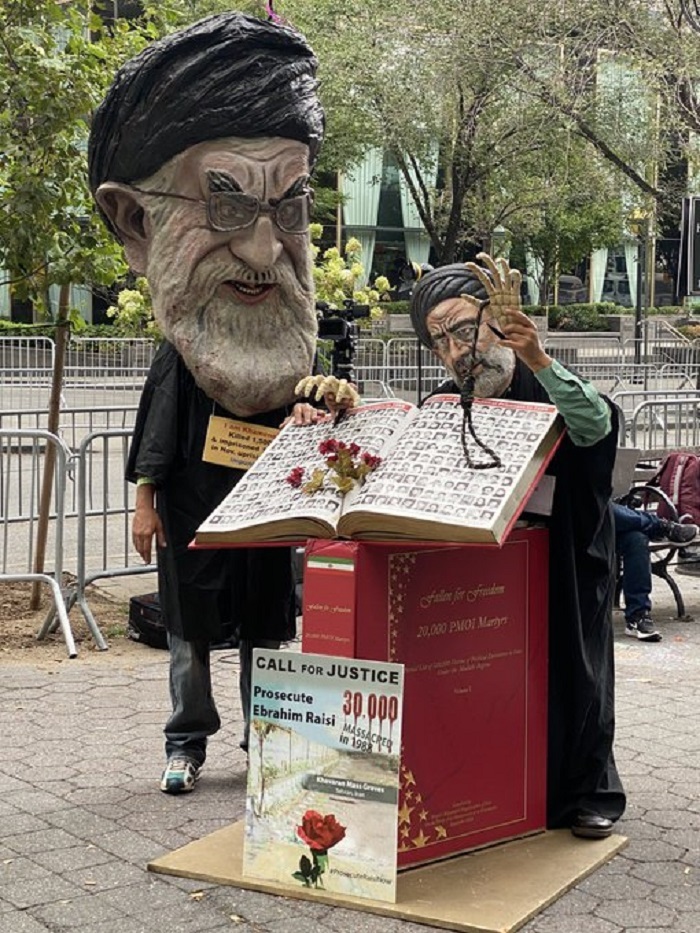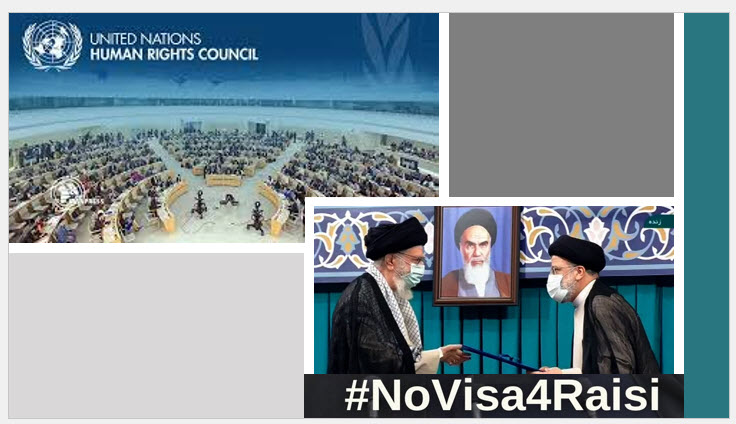
Ebrahim Raisi, the president of the Iranian regime, is expected to address the UN General Assembly after the start of its 77th session on September 13. This would, of course, require that the United States first grant him a visa to travel to New York, which would give him an inflated sense of legitimacy and show disregard for his long record of violating human rights and encouraging terrorism and extremism around the globe.
Two candidates abruptly withdrew from the race to support the supreme leader’s choice, and no other notable political figures were allowed to be listed on the ballot. The People’s Mojahedin of Iran (PMOI/MEK), the main pro-democracy opposition, meanwhile urged the populace to boycott the elections in order to “vote for regime change.”
The election boycott campaign by the MEK also aimed to draw attention to Raisi’s past and brand him as the “butcher of Tehran.”
In the wake of a nationwide uprising at the beginning of 2018, Khamenei appointed Raisi to serve as head of Iran’s judiciary. Raisi’s role in the attempted eradication of that movement was undoubtedly the primary factor in that appointment.

Numerous activists were killed and thousands were imprisoned following the uprising in January 2018, but this was nothing in comparison to how the regime handled a second, even more, significant uprising in November 2019. In a matter of days, about 1,500 peaceful protesters were killed, and thousands more were detained and left at the mercy of Raisi’s judiciary.
That judicial system showed no mercy at all; instead, it began a months-long campaign of systematic torture, which was later documented in reports by human rights groups like Amnesty International.
Iran already had the highest murder rate per capita in the world before Raisi took office, but it immediately began to rise after his confirmation. In the first half of 2022, the judiciary committed more than twice as many executions as it did in the same period in the previous year.

The crackdown, however, is also evident in the regime’s foreign policy, as recent reports indicate a rise in terrorism supported by Iran, specifically targeting the MEK and its affiliates. After Albanian authorities disclosed that they had seen evidence of credible security threats originating in Tehran, the MEK’s headquarters in Albania, Ashraf 3, was forced to postpone a planned rally and international video conference on the prospects for regime change.
After that, in August, the US Department of Justice made public its case against an IRGC agent who had tried to enlist killers to kill John Bolton, a former U.S. national security adviser. Following threats made against both men in the past, the same operative reportedly had long-term plans to have former US Secretary of State Mike Pompeo killed as well.
Salman Rushdie was attacked and stabbed on stage at a literary event in New York State on August 12, apparently in an effort to carry out a 33-year-old fatwa in which the founder of the Iranian regime called for the author’s death. Hadi Matar, the man who attacked Rushdie, had previously praised the IRGC on social media.
In the first place, his presence may serve as a source of inspiration for the regime’s agents and supporters, and in the second, it may give the regime the impression that the US is uninterested in holding Iran’s top officials accountable for terrorist threats and associated malign activities.

 MEK Iran (follow us on Twitter and Facebook), Maryam Rajavi’s on her site, Twitter & Facebook, NCRI (Twitter & Facebook), and People’s Mojahedin Organization of Iran – MEK IRAN – YouTub
MEK Iran (follow us on Twitter and Facebook), Maryam Rajavi’s on her site, Twitter & Facebook, NCRI (Twitter & Facebook), and People’s Mojahedin Organization of Iran – MEK IRAN – YouTub







